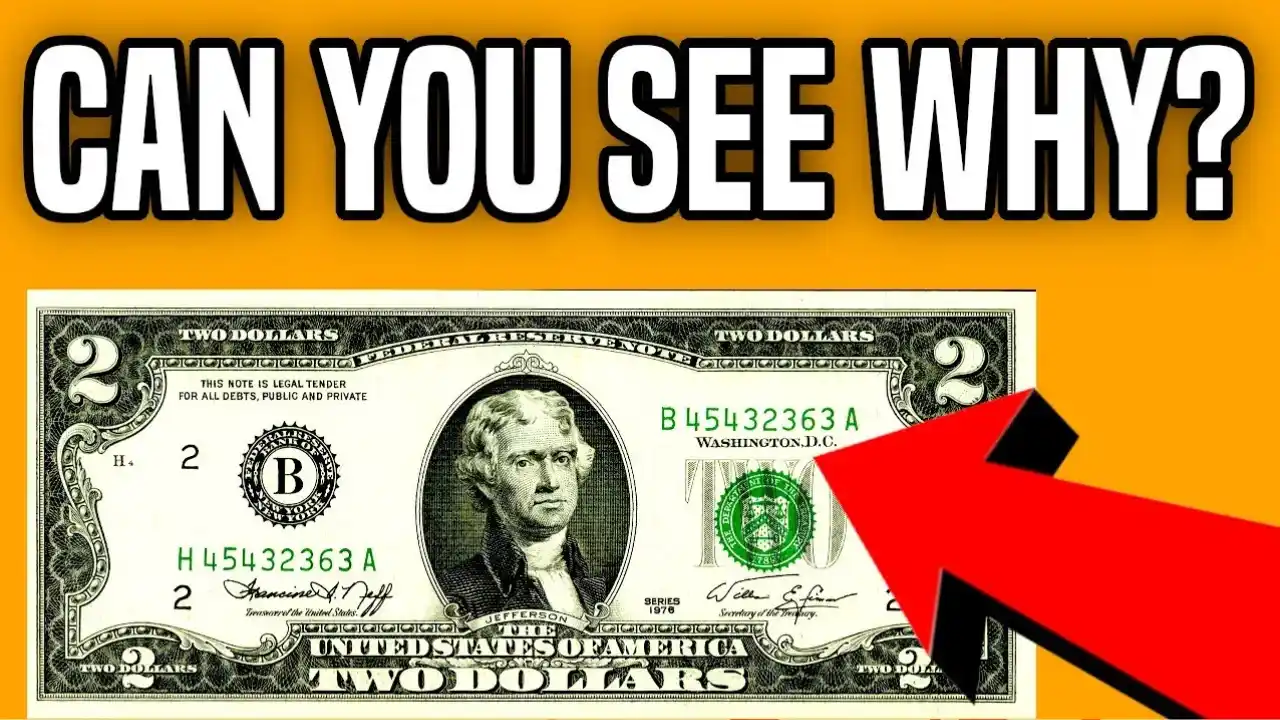Rare $20 note with reverse seal could be worth $95,000 – check your wallet What if the money in rare $2 note your pocket was worth more than its face value? Imagine giving someone a $20 bill with an upside-down seal and later discovering it could have been worth $95,000 at auction. These rare notes aren’t just currency—they’re treasures hidden in plain sight, waiting to be discovered by sharp-eyed collectors.
Man finds rare $2 bill: For most people, stopping at a gas station is nothing more than a routine errand. But for Daniel Harris, a 38-year-old mechanic from Texas, what started out small turned into the biggest discovery of a lifetime. Hidden in his change was a $2 bill that soon turned out to be worth millions.
What is a rare $20 bill with an upside-down seal?
The $20 bill with an upside-down seal is a printing error in which the financial seal is printed upside down. Usually, the seals are perfectly aligned, but in rare cases, printing sheets are fed incorrectly, causing errors. These mistakes are almost never caught before circulation, making them extremely rare and highly valuable.
The Hidden History of Currency Errors
The Bureau of Engraving and Printing is very careful, but human error and mechanical errors do occur. In the past, notes have been found with incorrect serial numbers, double stamps or upside-down overprints. Which of these is most sought after? Upside-down stamps. Some of the rarest mistakes on $20 notes date back to the early 1990s and have fetched large sums at auction.
Yellowstone 1944 Trailer: Brandon Sklenar and Kurt Russell-Good News
Famous U.S. Currency Error Types
| Error Type | Example Bill | Rarity Level |
|---|---|---|
| Upside-Down Seal | $20 Bill | Extremely Rare |
| Misaligned Serial Number | $1 Bill | Rare |
| Double Printing Error | $10 Bill | Very Rare |
| Blank Back Error | $5 Bill | Rare |
Why it’s so valuable today
Collectors pay high prices for flawed notes because they’re unique. A normal $20 note is worth exactly $20. But when the seal is upside down, the price skyrockets depending on rarity and condition. Some pristine specimens have been appraised at $95,000 or more, especially when verified by professional grading services.
KTM Electric Cycle Becomes Kids’ Favourite – Dragon Graphics, 77KM Range & Price Just ₹7,999
How to identify the note in your wallet
- Check the seal – On normal $20 notes, the green seal is upright. If it appears upside down, you may have hit the jackpot.
- Check the condition – Collectors value flawless notes more than older, uncirculated notes.
- Get professional verification – Services like PMG or PCGS Currency verify authenticity.
- Estimated value of a $20 note with an upside down seal
Estimated Value of $20 Bill With Upside-Down Seal
| Condition | Value Range |
|---|---|
| Heavily Circulated | $10,000 – $20,000 |
| Lightly Circulated | $30,000 – $50,000 |
| Uncirculated | $75,000 – $95,000+ |
Surprising facts you didn’t know
- Less than 0.01% of U.S. notes have serious errors like an inverted seal.
- The best-selling flawed $20 note sold at auction for nearly $100,000.
- Most Americans unwittingly spend money on flawed notes each year.
Expert advice to make the most of your find
- Handle with care – avoid bending or damaging the note.
- Store safely – use protective wrapping to maintain quality.
- Sell smartly – auctions and currency dealers are the best places to get the best price.
Frequently Asked Questions
Q: Can I spend a $20 bill like normal?
A: Yes, but that would be like wasting thousands of dollars.
Yellowstone Beth & Rip Spin-Off Episode 1 Trailer: A New Chapter Begins
Question: Are all $20 bills with printing defects valuable?
Answer: No, only notes that have serious, rare defects, such as reverse seals, are in high demand among collectors.
Question: Where is the best place to sell these?
Answer: A network of auction houses and professional collectors that specialize in rare currency.
Conclusion: Your $20 Could Be a Treasure
The rare $20 bill with the reverse seal is proof that money can be worth more than its face value. With specimens worth about $95,000, this flawed note is a gem of numismatics. So the next time you find change, take a closer look — there might be a treasure hidden in your wallet.
